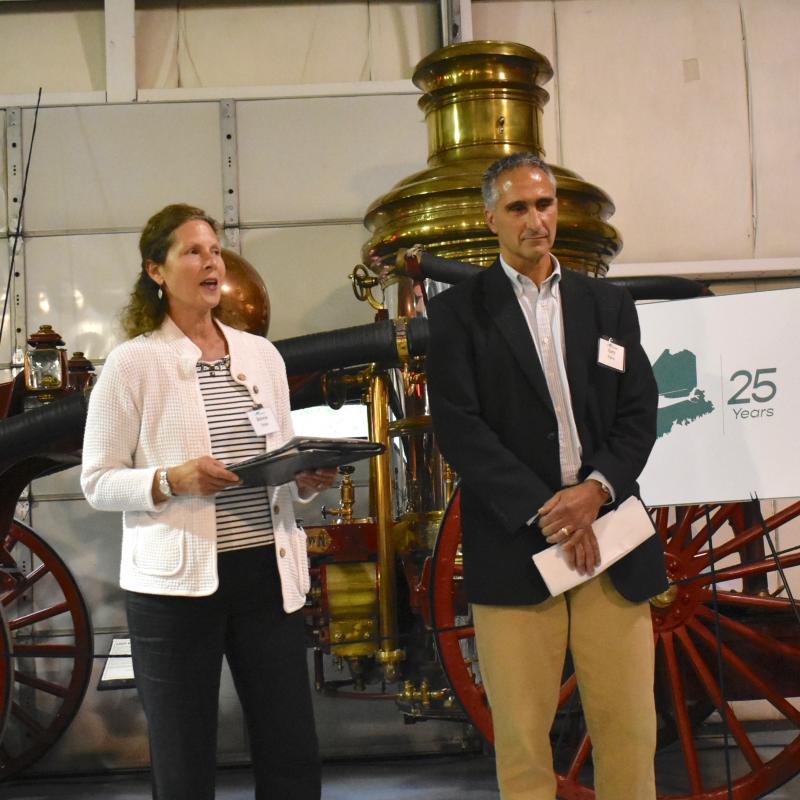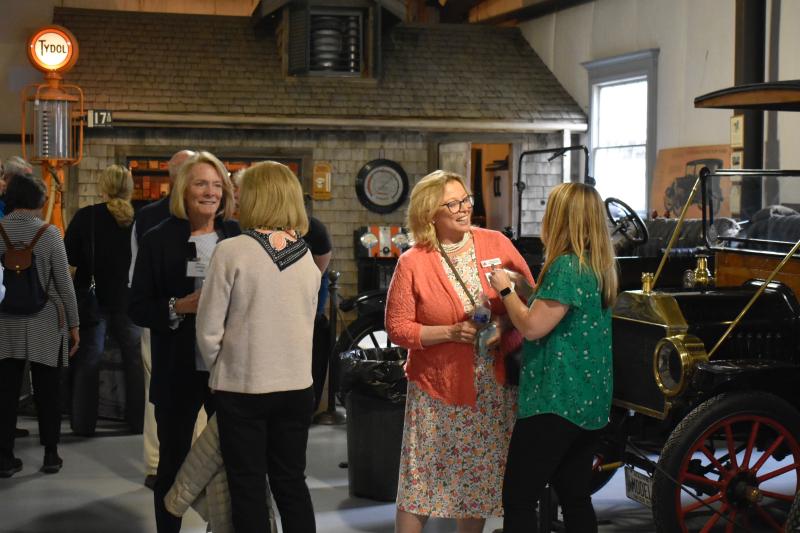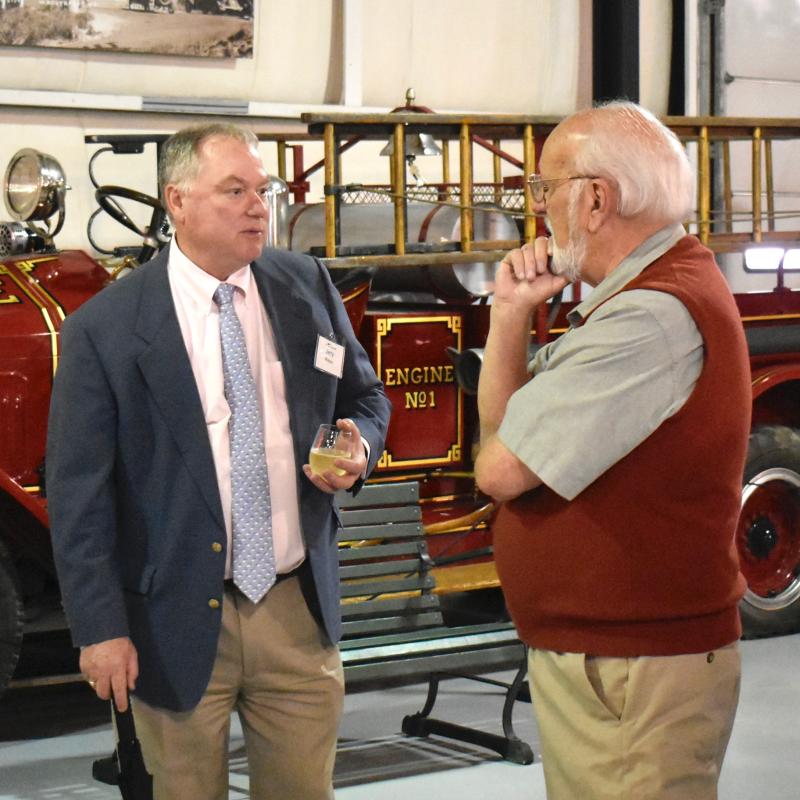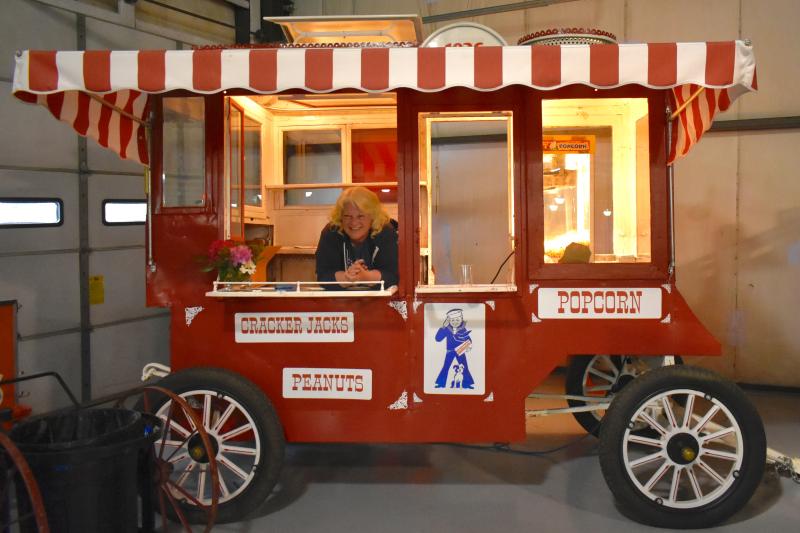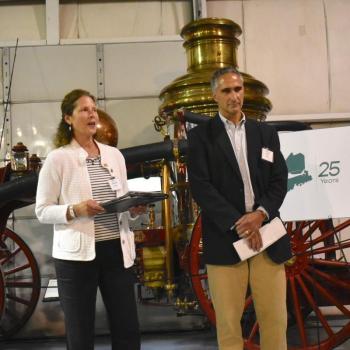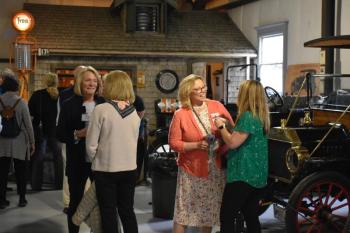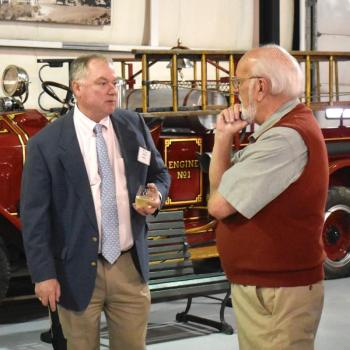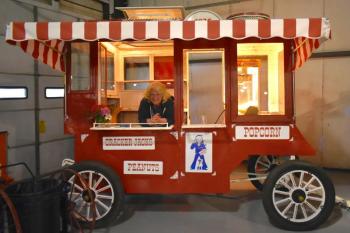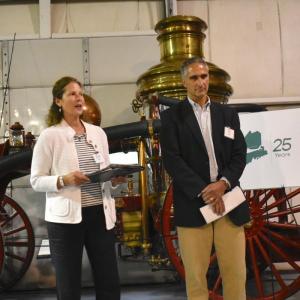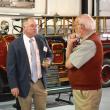LifeFlight announces ground transport program at 25th year celebration
LifeFlight of Maine announced the launch of its new statewide critical care ground transport program June 7. Officials from the organization broke the news during a celebration at Boothbay Railway Village Antique Automobile Museum marking LifeFlight’s 25th year.
"The 25th is about celebrating all we have accomplished together, looking ahead at the next 25 years for LifeFlight and doing it in partnerships with the communities that mean so much," said Kate O'Halloran, executive director of the Foundation. "Tonight is the formal launch of the campaign and what better place to do it than surrounded by automobiles that are rich in Maine’s history.”
O’Halloran said the event was part of stops around the state to raise support and awareness about LifeFlight’s mission and role in the state.
According to the organization, a LifeFlight team is dispatched every three and a half hours on average to provide care and transport for a critically ill or injured person in Maine; LifeFlight has transported over 36,000 people since the nonprofit was founded in 1998, including people from Lincoln County.
Bonnie and Gary Stone of Newcastle spoke at the event about their personal experience with LifeFlight. They shared the story of how their son, Ben, took an 18-minute helicopter ride to Maine Medical Center in Portland after a serious sports injury. They said the experience changed the trajectory of his life and helped inspire him to study medicine. He is now in his third year of medical school at Brown University.
Each LifeFlight vehicle has a pilot, nurse and paramedic, according to Jared Miller, who has been with LifeFlight of Maine for 20 years. Miller, a nurse and paramedic, attended the event and shared his experience.
"I enjoy helping people, to be honest,” Miller said. “It's not a glamorous job by any stretch of the imagination. We're pulling the helicopter out at 4 a.m., it's 10 below zero and we have to clean it after. But I truly enjoy helping people and the critical care medicine part of it."
Miller said LifeFlight makes Maine smaller. He said it is important in rural areas where hospitals are dispersed and on the coast where people have limited options to quickly travel off islands and peninsulas, especially in a late night emergency.
By car, it takes around an hour and 15 minutes to drive from in-town Boothbay to Maine Medical Center in Portland with limited traffic. According to Miller, it takes roughly an hour from the time LifeFlight gets a call until it can get a patient from the Boothbay region to care in Portland. That 15 minutes can make a difference.
“What is significant for a patient’s care is the time spent out of hospital,” said Bill Cyr, chief operating officer of LifeFlight of Maine. “For a patient being transferred from Boothbay to Portland, for example, that time is only about 15 minutes in a LifeFlight helicopter.”
When air transport is not feasible due to weather or because vehicles are not available, LifeFlight partners with municipal and private ambulance services. Ground transportation accounts for around 26% of missions, according to the organization.
However, according to O'Halloran, a current crisis in emergency medical services in Maine means support is not always available..
The new program is raising funds to buy and outfit three, $640,000 large-chassis ground vehicles, one for each LifeFlight base in Bangor, Lewiston and Sanford. According to LifeFlight, the new vehicles will relieve stress on local ambulance services and allow LifeFlight more independence to complete its typically longer-distance missions.
Each LifeFlight vehicle, both land and air, acts as a functioning mobile intensive care unit and is equipped with a pharmacy, blood and equipment including a portable laboratory, ventilator, ultrasound and other medical tools not readily available at many rural hospitals, according to the organization’s website.
O'Halloran said the nonprofit relies on support from donors to operate. She said the event was about raising funds but equally about raising awareness of the role LifeFlight plays in the state.
"Every LifeFlight patient has one thing in common,” she said. “When they woke up in the morning, they did not think they were going to need a helicopter or plane or ambulance ride with strangers to save their life and that's what LifeFlight does, and we do it every day of the year.”

